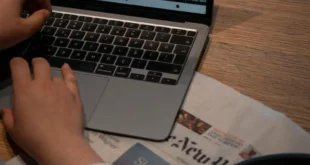 Lebanon's satellite broadcasting industry has been seriously jolted, first by the government's closure in early September (2002) of Murr TV (LMTV, not to be confused with the international music channel MTV) and most recently (October 21, 2002) by the Lebanese High Court's denying the channel the right to appeal this closing. Critics argue that the closure and the denial of appeal can only harm Lebanon's reputation as a haven in the Arab World for freedom of expression.
Lebanon's satellite broadcasting industry has been seriously jolted, first by the government's closure in early September (2002) of Murr TV (LMTV, not to be confused with the international music channel MTV) and most recently (October 21, 2002) by the Lebanese High Court's denying the channel the right to appeal this closing. Critics argue that the closure and the denial of appeal can only harm Lebanon's reputation as a haven in the Arab World for freedom of expression.
LMTV was closed by court order for violating Article 68 of the Lebanese elections law, which forbids use of a broadcasting medium to advertise on behalf of candidates in elections. In addition, the station has been accused of slandering the country's president and its security services, as well as damaging the country's ties with Syria.
According to Josef Khalil, a producer and director at LMTV and lecturer at the Lebanese American University, the decision invoked the maximum penalty applicable and failed to take into consideration what Khalil described as "attenuating circumstances, such as the fact that this decision will leave 450 persons jobless and will impact negatively on Lebanon's image and reputation."

Khalil was at the station on the day it was closed down. "You can't imagine the way they invaded the station," he says. "Around 100 Internal Security Forces (ISF) troops stormed the premises of the main studios at Naccash. LMTV's main headquarters in Ashrafieh was also surrounded by some 200 ISF members. Technically speaking, you really only need one person to get a station closed. This did not have the appearance of implementing a court verdict; it looks more like the settling of accounts on a political level."
Observers agree that, while LMTV did not comply with the elections law, neither did other Lebanese channels. Thus, though the evidence would indicate that the press court's decision is proper even if, as Khalil argues, excessive, a question remains. Why was only LMTV brought before this court and not other offenders?
Nor is this the only discrepancy between law and practice. Dr. Nabil Dajani, chairman of the Mass Communication Department at the American University in Beirut (AUB), pointed out in his study of Lebanese television (TBS 7 fall/winter 2001) that Lebanon's media laws prohibit television channels from direct management by government figures or private individuals prominent in politics and that no individual (or his direct relatives) can own more than 10 percent of a television channel. Nevertheless, in 1996, four licenses were granted to stations belonging to members of the government or to their relatives, thereby maintaining the sensitive religious-sectarian balance that is of paramount importance in actual rather than theoretical Lebanese political culture. LBC, which started as a Maronite militia channel in the civil war, was licensed, as was Future, owned by the Sunni Prime Minister Rafiq El-Hariri, and also NBN, owned by the family of the Shi'ite Speaker of Parliament Nabih Berri. Murr is owned by the Greek Orthodox El-Murr family; more specifically it is owned by Gabriel El-Murr, brother of former Minister of Interior Michael El-Murr. Gabriel also owns four radio stations and an entertainment magazine that promotes LMTV.
This contradiction illustrates Dajani's thesis that Lebanon, as a society fragmented along sectarian lines, is going through a crisis of transformation with its "relatively modern laws and perspective, and [the] persistence (of sectarianism), which is demonstrated by the performance of its political and religious bosses." The contradiction is also intensely reflected in the field of satellite broadcasting, which now reaches nearly every Lebanese home, in contrast to Lebanon's limited newspaper readership. LMTV transformed itself into a satellite broadcaster in November 2000, following the move by LBC, Future, and Al-Manar (subsequently licensed as a Hezbollah/Shi'ite voice), and NBN.
Given the participation at the time of Michael El-Murr in the government (his position as Minister of Interior was subsequently assumed by his son Elias El-Murr who is also married to the daughter of Lebanon's "moderate" or-depending on one's perspective-"pro-Syrian" Maronite President Emile Lahoud) and the historic moderate perspective of the Greek Orthodox community, who have traditionally identified themselves with the Arab World in contrast to the Maronites, the station initially was quite muted in its editorial criticism of the government.
Two things radically altered this unusual but not particularly confrontational broadcasting environment. The two brothers split over the issue of who would represent the Orthodox in the Matn—Gabriel El-Murr, the owner of LMTV or Michael El-Murr's daughter Marina. In the event, Gabriel El-Murr won the hotly contested election last June and moved his station solidly into the Lebanese Christian (and predominantly Maronite) opposition camp. According to Dajani, the station also started to champion the anti-Syrian positions of the opposition in an effort to grab the "right-wing" Christian audience away from Lebanese Broadcasting Corporation International (LBCI).
Dr. Magda Abu-Fadil, director of the Institute for Professional Journalists at LAU and a veteran reporter of English and Arabic news media, says it is all very clear. "Gabriel El-Murr backs the opposition to the pro-Syrian government and his station and its employees during the election campaign used the TV channel as a platform to promote these policies."
Dajani sees the issue somewhat differently. "He (Gabriel El-Murr) did provoke a number of influential political forces in the country, but he gave them the opportunity to "catch" him on legal grounds. I have no question in my mind that his medium violated the law and did not act in a socially and nationally responsible way. But, then again, he was not the only one to do so," the AUB professor said.
Abu-Fadil sees the issue in more repressive terms: LMTV was closed to silence the Christian opposition in Lebanon and ensure that all media tow the pro-Syrian line. "Syria is the main power broker in Lebanon" she said, "and Syria maintains anywhere from 20,000 to 30,000 troops in the country."
According to Khalil this was a decision waiting for the proper scenario. "LMTV was harassed on numerous occasions for providing a media platform to criticize the regime and allowing its opponents the freedom to express their viewpoints. A case in point was the various rumors in the press about the discussions to close the station" Khalil noted that these discussions were taking place in the Cabinet, yet the final decision came through the judicial body, which seemed to suggest a highly politicized court ruling. "Even the court order itself was criticized by various prominent jurists including Dr. Edmond Neim and Dr. Hassan El-Rifa'i," he added.
The charges are directed against the station itself, as well as Ziad Njeim, the host of Istifta' ("Referendum"), a political talk show, and Boulos Haddad, the station's director of political programming. "LMTV went on to air interviews and show some programs such as Ziad Njeim's that were taken by the authorities as crossing the line and in violation of all laws and norms," said Dr. Mahmoud Tarabay, a journalism professor at the Lebanese University and the LAU.
The charges follow similar accusations against LBCI, the most popular Christian-owned channel. But, Khalil claims, "They singled out one station for violating the law while other stations were not persecuted."
"LBCI has also come under scrutiny for reporting news that the government has found offensive and which it claimed fanned the flames of sectarianism-a charge LBCI has denied," said Abu-Fadil.
According to experts there are bound to be further restrictions in this highly charged atmosphere, much to the chagrin of journalists and TV station owners.
Yet Tarabay insists that the private channels do have the freedom to tackle and discuss all issues within the boundaries of the law. "There are some taboos than cannot be touched upon, nor misrepresented nor distorted by media. These taboos involve talking badly about the head of state and the armed forces and disturbing relations with the Arab countries. Any thing beyond these matters can be discussed freely."
According to Dajani one of the most serious problems that Lebanese television needs to address is that of economic viability. "So many channels have to share a very slim advertising budget. Given the few available resources, these channels are forced to seek subsidies from political or other sources. I believe that it is imperative that mergers take place and that these mergers insure that the new channels address all the Lebanese groups and are not partisans of one sect or community."
Few would question that the future of broadcasting in Lebanon is murky. According to Abu-Fadil, the audiovisual media law of 1994 is undergoing some revisions precisely because several broadcast companies secured operating licenses for radio and TV stations to satisfy politicians and their families who own the outlets.
Dajani sees the field as being in a state of crisis. "The television situation in Lebanon, in my opinion, is grave and needs responsible action. The present television stations serve more as sources of alienation and division than sources of unity and constructive exchange. I hope that the required change be assumed by the media itself, to become more socially responsible and to serve more as a unifying force to end the disorientation of the conflicting groups," said Dajani.
The future of broadcasting in Lebanon has been in question ever since the civil war ended in 1989. "Neither the government nor the media were able or ready to come out with 'socially responsible' answers about the role of this medium. The different governments were concerned with politically influencing this medium and the media practitioners were more interested in financial gains. The different solutions/decisions adopted (such as the 1994 audiovisual law) were not adhered to by either the government or the media," said Dajani.
Recently, Prime Minister Rafiq El-Hariri, who still owns Future TV, said politicians should divest themselves of the media, claiming it was improper for them to have interests in these outlets. "Media critics say El-Hariri had initially supported the legislation granting politicians the licenses but that he and Berri were losing big money, hence the desire to sell off their media companies," Abu-Fadil added.
According to An Nahar newspaper Saudi Prince Al-Walid bin Talal, a successful Saudi businessman, is negotiating to buy a hefty share of LMTV from Gabriel El-Murr in a move that An Nahar suggested might speed up the process of putting the shuttered network back on the air. Reliable sources insist that Prince Al-Walid, who is also a Lebanese citizen, actually owns 10% of LMTV under his Lebanese name of Walid El-Solh.
"The sale of LMTV to the prince is at a serious stage," Information Minister Ghazi Aridi told reporters after an October 2002 regular weekly session of the Council of Ministers, according to An Nahar. But a spokesman from LMTV dismissed the idea that Prince Al-Walid was interested in LMTV, given the political problems the station is facing and the controversy that surrounds it.
Khalil said that "Information Minister Ghazi Aridi stressed that the problem facing the sector was not because politicians owned media, but because the "existing political cover" for these stations was blocking implementation of the media law. A politician might provide political cover for a given station without necessarily being its biggest or dominant shareholder."
The closing of LMTV is both a challenge and a corrective for satellite broadcasting in Lebanon. But if this issue is not solved to the satisfaction of all the parties concerned, it will raise grave doubts about the future of broadcasting in Lebanon, which has long prided itself on being a haven for free media in the Arab world.
 Arab Media & Society The Arab Media Hub
Arab Media & Society The Arab Media Hub




